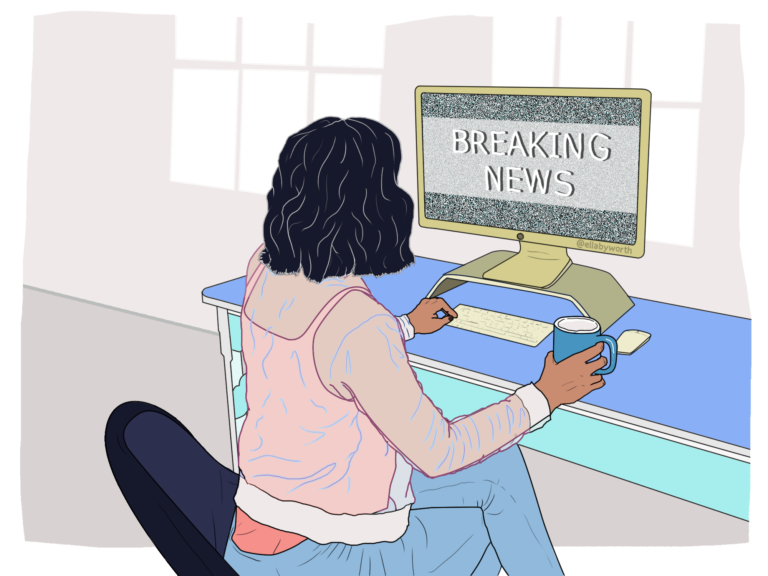May is mental health awareness month. Here is what you should
Mental health is an important issue that affects almost every one of us at some point in our lives. It can be hard to talk about and even harder to feel comfortable having these conversations with friends, family members, and loved ones. If you’re struggling with depression or anxiety, then it is essential that you know there are people out there who will understand what you feel like on a day-to-day basis, so don’t be afraid to reach out for help if needed!
Mental health can happen to anyone.
Mental health is a part of mental illness. You can have mental health and not have a mental illness, but sometimes we need to talk about it because it’s essential to know how your brain works.
Mental health means feeling good about yourself and being able to manage stressors in your life without having an episode of depression or anxiety. It also includes giving yourself support when you need it, so that you don’t feel alone or overwhelmed by life’s challenges—and then getting back on track when the situation improves again!
Mental illness is not your fault.
You don’t have to be weak, or a bad parent, and you don’t have to blame yourself for your mental illness.
- Mental illness is not a choice. It’s not something that you can choose when you want it and then get rid of later. The symptoms of mental illness will always be there, no matter how hard you try to ignore them or hide from them in order not to feel like an aberration from society’s standards of beauty, intelligence, etc., because they are there regardless! They’re part of who we are as human beings—and this being so done does not mean that anything else about our lives should be ignored either!
- Mental illness does not make people crazy; it just means they experience different kinds of feelings than most people do (and sometimes these feelings cause serious problems).
Mental illness is about your brain, not who you are
Mental illness is not a choice. It’s not your fault, and it’s not punishment. How you think, feel and act is because of how your brain works—not who you are as a person.
Mental health awareness month is an opportunity to talk about mental illness in a respectful way that doesn’t stigmatise people with depression or anxiety disorders or other disorders that affect brain chemistry and behaviour control (1).
- It’s okay to be just one thing.
The most important thing to remember is that you’re not your mental health condition. You can be a lot of things and still be okay.
So if you struggle with anxiety, don’t feel like you need to be an expert on it or any other mental health issue for that matter. Some people might think the best way to show support for the cause is by wearing their favourite shirt from Target or donating their monthly Starbucks gift card; however, there are so many other ways we can show our love without knowing about these diseases!
Mental health conditions are natural.
Mental health conditions are natural, and they can happen to anyone. While it’s important to realise that mental illness is not a choice, you don’t have to feel ashamed if you or someone close to you has experienced depression or anxiety. You’re not alone—and neither is your loved one!
Mental health conditions are complex disorders that affect our thinking, feeling, and acting. They often result in mood changes and behaviours and symptoms like insomnia or irritability. Still, many people who struggle with these issues do so without telling anyone about them because they believe what others would say about them if they did so (or because it would mean admitting defeat).
A diagnosis of any type of mental illness requires more than just saying “I’m depressed” – there must be evidence provided by doctors through tests such as psychological testing (for example, clinical interviews), blood tests & brain scans which show what kind(s)
There are many types of mental conditions.
- Depression, bipolar disorder, and schizophrenia are all mental conditions that can cause a person to feel sad or down.
- Anxiety disorders include panic attacks. These are sudden physical symptoms like nausea and chest pain in response to an anxiety-provoking event such as a high-pressure situation or worry about something dangerous happening in the future. The person experiencing these symptoms feels out of control because they cannot stop them from happening at any time they want it stopped by themselves.* Post-traumatic stress disorder (PTSD) occurs when an individual becomes overwhelmed with fear after experiencing a traumatic event such as war trauma or natural disasters such as earthquakes etc. PTSD is not just limited only to soldiers who have been injured physically but also to civilians who have experienced sexual assaults or domestic violence against themselves too!
- Eating disorders occur when people restrict food intake for long periods without gaining enough weight to allow doctors to measure their weight loss. They can starve themselves until they collapse from a lack of nutrients within their body, even though they feel hungry enough not to want anything else. Another method is to eat small portions in a short period so that, no matter how long passes between meals, there will still be nothing left except crumbs.
You’re not alone
If you’ve had a tough time, don’t be ashamed. It’s common for people to feel like they have a mental health problem or that they’re alone in their struggle.
There are many ways to get help if you need it:
- Get support from friends and family members who are willing to listen. They might be able to relate your experiences based on their own experiences with mental illness and ensure that you’re getting the best treatment possible from professionals who will treat your condition effectively.
- Talk about your problems openly with someone who will listen without judgment or advice (like a therapist). A good therapist can help diagnose what’s going wrong in your life so that they can better treat other symptoms and maybe even give some good advice!
Mental health treatment works.
You might be wondering, “Can mental health treatment really work?”
The answer is yes. In fact, it can be effective for many people and even in the long term. Mental health treatment is a process that involves working with your doctor or therapist on an ongoing basis to help you overcome your issues and get better. It may include medication or regular therapy sessions with a mental health professional; however, this varies from person to person depending on their needs at any given time.
Mental health is essential, and so is seeking help when needed.
Mental health is an important topic to talk about, and one that’s often stigmatised and misunderstood. It’s not a binary state—you can have mental health issues without being clinically depressed or anxious. Mental illness can be physical, emotional, or behavioural; it’s not something you can see with your eye (though some people might experience physical symptoms).
Mental illnesses such as anxiety disorders and post-traumatic stress disorder affect people differently depending on their age, gender identity, race/ethnicity, and other factors. When facing a mental health issue, irrespective of its cause or symptoms, seeking help is always the right thing to do if you feel overwhelmed by emotions or thoughts that seem unbearable at times—or if other factors in your life are causing you stress.
Conclusion
We hope you enjoyed these articles, and that they gave you some insight into the importance of mental health awareness. Please let us know if there is anything else we can do to help spread the word about this important topic!







